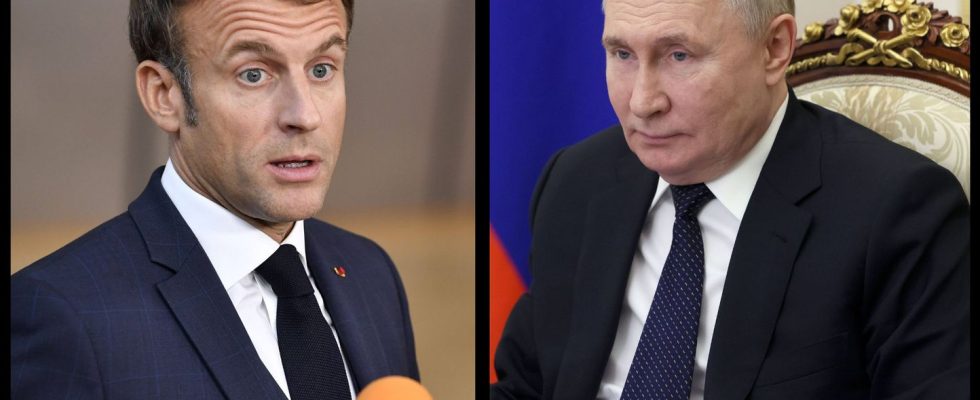The French and Russian defense ministers have not spoken since October 2022. But, at the initiative of France, Sébastien Lecornu and Sergei Choïgu picked up their phone this Wednesday, two weeks after the attack in Moscow, which left at least 144 dead and 360 injured at Crocus City Hall.
France hoped to offer increased cooperation in matters of terrorism, while the countries have been at odds since the Russian invasion of Ukraine. After the meeting, the Russian Defense Ministry commented on the discussion in a statement, saying it hoped that “the French secret services [ne soient] not behind” the attack in the Moscow suburbs.
A storm in a glass of water ?
“This is not a direct accusation but an insinuation [qui s’inscrit] in the Russian discourse according to which Ukraine, a puppet of Western secret services, is behind the attack,” notes Jean de Gliniasty, research director at the Institute of International and Strategic Relations (Iris) and former ambassador to Russia. An insinuation which led to a myriad of outraged reactions in France.
“I have the impression that it’s a lot of ado about not much,” reacts Igor Delanoë, deputy director of the Franco-Russian Observatory. I did not have the feeling that the press release particularly singled out the French. » On the contrary, “since the attack the Russians have rather targeted the Anglo-Saxon services whereas one might have expected them to designate the French services”, notes the deputy director of the Franco-Russian Observatory . Paris in fact attracted the wrath of Russia after the declaration of Emmanuel Macron who affirmed at the beginning of March that nothing should be excluded in Ukraine, not even the sending of Western troops.
A “downgraded” Franco-Russian dialogue
The president reacted from the aquatic center of the Paris Olympic Games, saying that the statements of the Russian Ministry of Defense were “ridiculous” and amounted to “saying that France could be behind” the attack which plunged Russia into mourning. But could this simple sentence put a stop to this resumption of Franco-Russian dialogue? “From the moment you have diplomatic representations, you talk to each other. The question is the level of exchanges,” adds Jean de Gliniasty.
“The dialogue takes place first at the level of the presidents. He was demoted to ministerial level after the start of the war and the broadcast of discussions between Vladimir Putin and Emmanuel Macron. Then, it fell to the level of institutions, where it is no longer really a dialogue but rather technical or preparatory discussions,” explains Igor Delanoë. “But there have always been contacts at ambassadorial level, either in Moscow or on the fringes of the UN, and probably underground contacts between security services. The dialogue has never been completely broken,” assures Jean de Gliniasty.
A “resumption of contact”
For almost two years, Paris and Moscow have no longer spoken to each other through their presidents or even their ministers. This phone call between ministers therefore marks a slight warming of the dialogue. “It illustrates a resumption of contact,” confirms Igor Delanoë. The Elysée, at the initiative of this exchange, justified it by a desire to work jointly on jihadist terrorism while Russia is in mourning by the attack claimed by the Islamic State (IS) organization.
“This first contact is based on an area where France and Russia have partially converging interests,” explains Jean de Gliniasty. But this exchange “does not mean that they will speak again for a year, a year and a half”, warns Igor Delanoë.
“Sterilize any future communication attempts”
In France, voices were immediately raised against a resumption of dialogue, like that of the former president. François Hollande, in fact, denounced Moscow’s “instrumentalization” of this telephone interview and recommended “no contact with Russia” this Thursday on France Inter. However, “after almost two years of total rupture, it is normal that this start of dialogue does not take place under the sign of reunion or trust”, smiles Jean de Gliniasty.
It remains that “the controversy which follows this call could dissuade a possible reactivation of contacts at the level of the Ministry of Defense, on the French side”, notes Igor Delanoë for whom it is “important to talk to each other, especially when there is a situation of conflict “. But, “for some, the game seems to be to sterilize any attempt at future communication,” he regrets. It is therefore not certain that the seed of cooperation against jihadist terrorism will be sufficient to make the renewal of Franco-Russian dialogue flourish.

